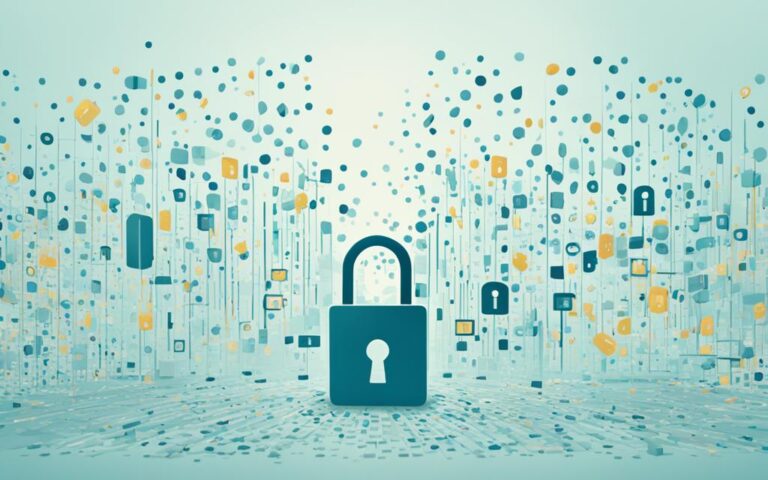The Impact of Quantum Computing on Data Destruction Techniques
Quantum computing is set to revolutionize the field of data destruction techniques, bringing about significant advancements in security measures. Unlike traditional computing methods, quantum computers utilize the principles of quantum mechanics to perform lightning-fast calculations. In this article, we will explore the implications of quantum computing on data destruction strategies and delve into the need for advanced security measures in our digital era.
Understanding Quantum Computing Principles
Quantum computing is founded on the principles of quantum mechanics, employing qubits as the fundamental unit of information. Unlike classical bits, which can only represent either a 0 or a 1, qubits have the remarkable ability to exist in multiple states simultaneously, thanks to superposition. This attribute allows quantum computers to perform calculations in parallel, leading to exponentially faster processing speeds.
Entanglement is another critical concept in quantum computing, where the state of one qubit becomes entwined with the state of another, regardless of the distance between them. This phenomenon facilitates more efficient computation and communication.
Quantum interference plays a vital role in the accuracy of quantum computations. It enhances the probability of obtaining correct results by manipulating the phases of different qubits to constructively or destructively interfere with one another.
To better understand the principles of quantum computing, let’s break down the key concepts:
1. Qubits:
Qubits are the building blocks of quantum computing. While classical bits have fixed states of 0 or 1, qubits can simultaneously represent multiple states through superposition. This property allows for parallel computation and enables quantum computers to solve complex problems more efficiently.
2. Superposition:
Superposition is a fundamental principle of quantum mechanics that allows qubits to exist in a simultaneous combination of different states. This capability exponentially increases computational power by performing calculations in parallel rather than sequentially.
3. Entanglement:
Entanglement is a unique property in quantum computing where two or more qubits become interconnected, forming a single entangled state. This entanglement enables the manipulation of one qubit to instantaneously affect the state of another, regardless of the physical distance between them. It offers potential advancements in computation, communication, and cryptography.
4. Quantum Interference:
Quantum interference is the phenomenon that arises when the states of different qubits interfere with each other constructively or destructively. By manipulating the phases of qubits, quantum computers can enhance the accuracy of computations and increase the likelihood of obtaining correct results.
By harnessing these principles, quantum computing unlocks a realm of possibilities that challenge the limitations of classical computing, paving the way for groundbreaking advancements in various fields.
- “Principles of Quantum Computing,” Quantum Magazine, quantum-journal.org
- “Introduction to Quantum Computing,” IBM Quantum
Current Challenges of Quantum Computing
While quantum computing holds immense promise, there are several challenges that need to be addressed. One of the main challenges is the stability of qubits. Qubits, the basic unit of information in quantum computing, are highly sensitive to environmental interference, such as temperature fluctuations and electromagnetic radiation. These factors can lead to errors in calculations and hinder the performance of quantum computers.
Researchers are focused on developing techniques to mitigate these challenges and improve qubit stability. One approach is cooling qubits to extremely low temperatures. By reducing the temperature, environmental noise can be minimized, ensuring more accurate and reliable calculations. This technique requires sophisticated cooling systems and precise control over the qubits.
In addition to stabilizing qubits, another challenge lies in building scalable and stable qubits. As quantum computing progresses towards practical applications, the need for qubits that can be produced at scale becomes crucial. Currently, qubits can be fragile and prone to errors, limiting the potential of quantum computers.
Researchers and industry leaders are dedicated to overcoming these challenges through advancements in materials, fabrication techniques, and error correction methods. Achieving stable and scalable qubits will be pivotal in unlocking the true potential of quantum computing.
Addressing the challenges of qubit stability and environmental interference is vital for the future of quantum computing. As these challenges are overcome, quantum computers will become more reliable, powerful, and capable of solving complex problems that were previously unimaginable.
Data Security and Quantum Computing Hardware
Data security is a critical concern in the face of advancing quantum computing technology. The power of quantum computers poses a significant threat to current encryption methods and software wiping techniques, rendering them inadequate in protecting sensitive data. The potential of quantum computing to break widely used encryption schemes can expose confidential information, compromising the security of personal data, financial transactions, and confidential communications. To address this issue, the development and implementation of quantum-resistant cryptographic solutions, also known as post-quantum cryptography, are of utmost importance.
“Quantum computing has the potential to render many encryption algorithms obsolete, threatening the security of our digital infrastructure. To protect sensitive information in an era of quantum computing, organizations must embrace quantum-resistant cryptography.”
Quantum-resistant cryptography utilizes algorithms that can withstand the computational power of quantum computers, ensuring data security in the future. These advanced cryptographic solutions employ mathematical operations that are currently believed to be resistant to attacks by quantum algorithms. By adopting quantum-resistant cryptography, organizations can safeguard their critical data and maintain confidentiality, integrity, and authenticity in the quantum computing era.
Advantages of Quantum-Resistant Cryptography:
- Protection against attacks from quantum computers
- Preservation of data confidentiality
- Maintenance of data integrity
- Ensuring secure communication and transactions
Implementing post-quantum cryptographic solutions requires collaboration between academia, industry stakeholders, and government agencies to establish standards and best practices. Organizations need to proactively prepare for the future of data security by investing in research and development of quantum-resistant cryptographic algorithms.
| Traditional Encryption Methods | Quantum-Resistant Cryptography |
|---|---|
| Reliant on mathematical problems that can be solved efficiently by classical computers | Based on mathematical problems that quantum computers cannot solve efficiently |
| Potentially vulnerable to attacks from quantum computers | Designed to withstand attacks from quantum computers |
| May require frequent key updates to maintain security | Offers long-term security without the need for frequent key updates |
| Subject to advances in computational power that could compromise security | Not easily susceptible to technological advancements |
Table: Comparison between Traditional Encryption Methods and Quantum-Resistant Cryptography
Conclusion
Quantum computing is set to revolutionize data destruction techniques and reshape the cybersecurity landscape. The unparalleled processing power of quantum computers presents both opportunities and challenges for organizations. It is clear that traditional encryption methods and software wiping techniques are no longer sufficient to protect sensitive data in the face of quantum computing advancements.
To safeguard the integrity and security of data in our digital era, it is imperative for organizations to adopt advanced security measures. Investing in quantum-resistant cryptographic solutions is crucial to ensure that confidential information remains protected in a post-quantum computing world.
Adapting data destruction strategies and staying ahead of the curve is essential. Organizations must proactively incorporate quantum-resistant encryption and data destruction techniques into their cybersecurity frameworks. By doing so, they can mitigate the risks associated with quantum computing and maintain the highest level of data security.
As quantum computing continues to advance, it is paramount for businesses and individuals alike to understand its implications and take proactive steps to enhance their security posture. By embracing advanced security measures, organizations can ensure the longevity of their data destruction techniques and effectively counter the threats posed by quantum computing.
FAQ
What is quantum computing?
Quantum computing is a powerful technology that leverages the principles of quantum mechanics to perform complex calculations at fast speeds.
How does quantum computing work?
Quantum computing operates using qubits as the basic unit of information, which can exist in multiple states simultaneously due to superposition. This allows for parallel processing and exponentially faster speeds.
What is entanglement in quantum computing?
Entanglement is a key concept in quantum computing where the state of one qubit becomes linked with the state of another, enabling more efficient computation and communication.
What challenges does quantum computing face?
One of the main challenges is the stability of qubits, which are sensitive to environmental interference. Research is focusing on mitigating these issues and improving the scalability and stability of qubits.
How does quantum computing affect data security?
Quantum computing has the potential to break current encryption methods, leading to the need for quantum-resistant cryptographic solutions. Post-quantum cryptography is crucial to protect sensitive information.















